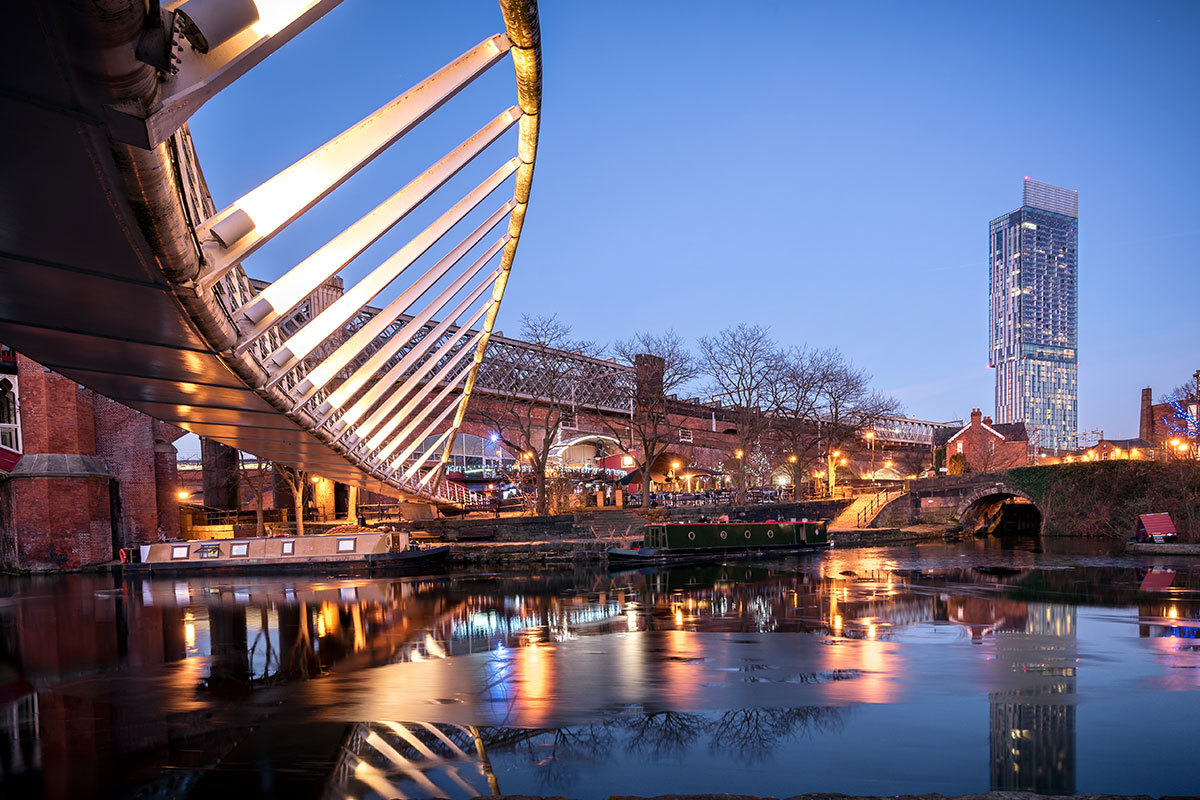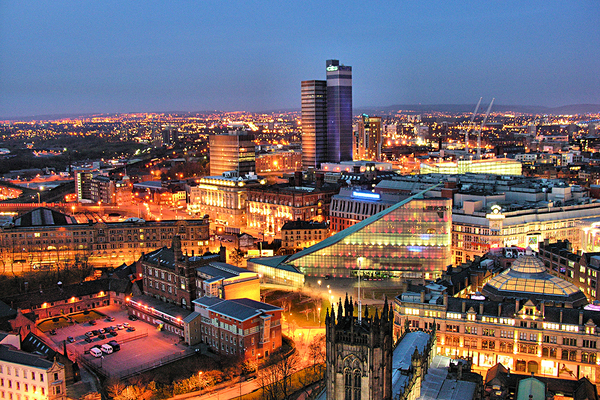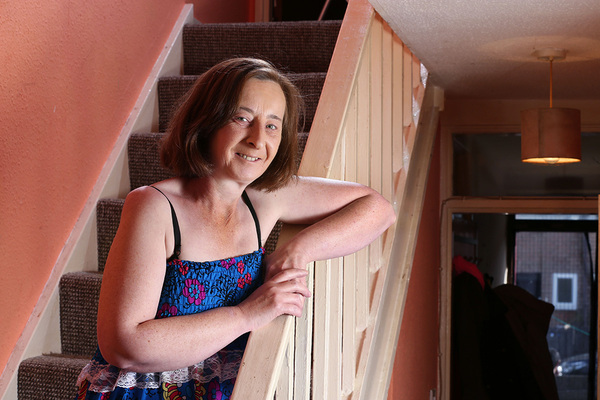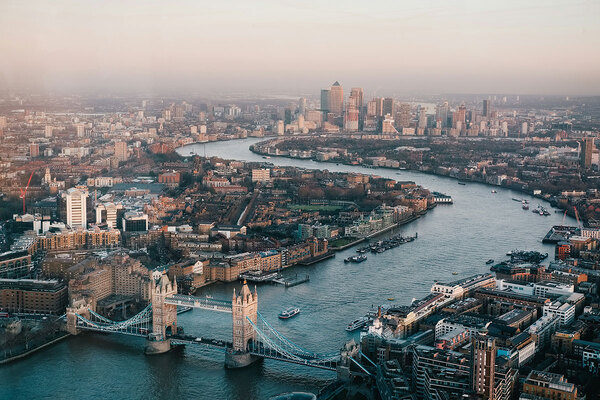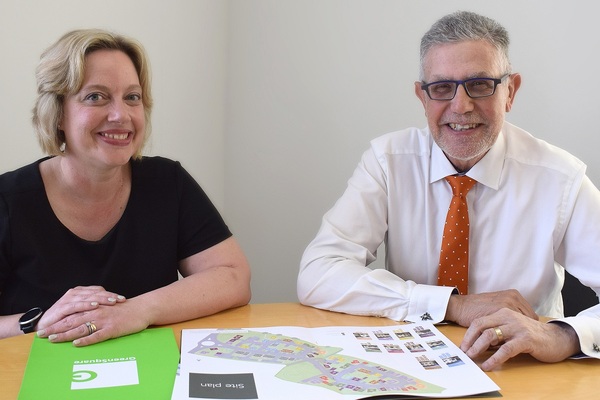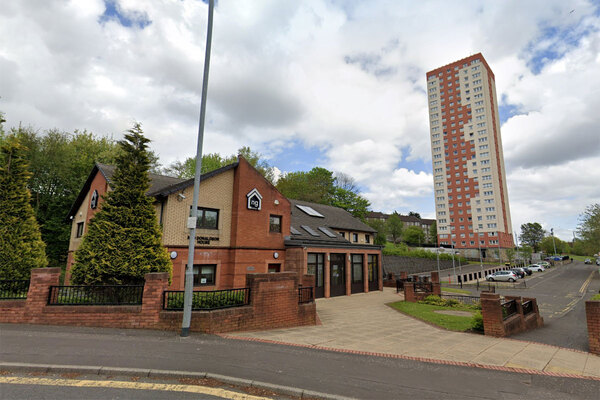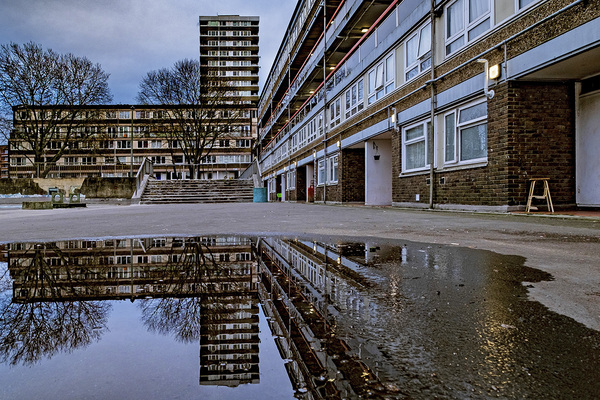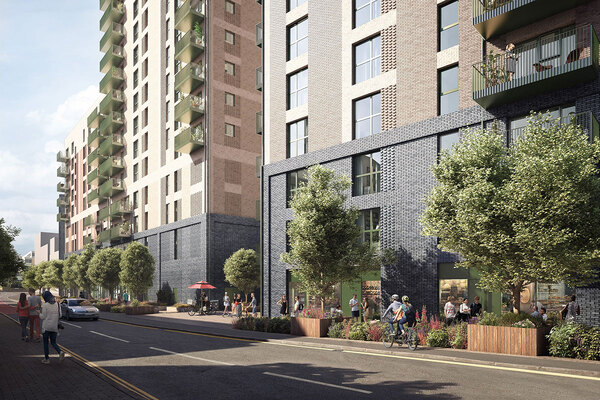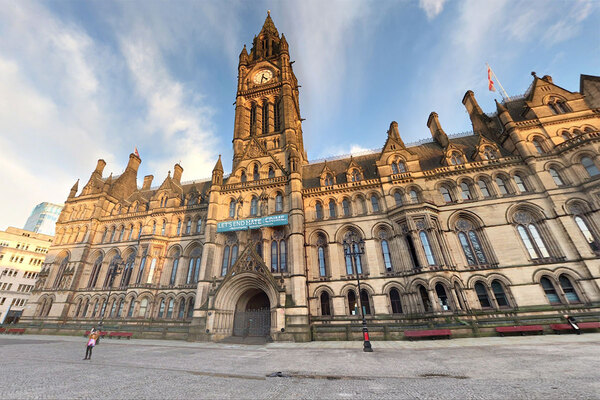You are viewing 1 of your 1 free articles

We must be careful that local people don’t feel left behind as property development transforms Manchester
The recent Manctopia documentary series showed the many faces of Manchester’s housing story. It is vital that property development is matched by social, economic and community development if local people aren’t to feel like they have been left behind, writes Sir Peter Fahy
The BBC2 documentary Manctopia highlighted many themes familiar to housing professionals and indeed anyone concerned about social policy, but did so in a particularly stark way.
At one end were the tall blocks of penthouse flats being constructed all over the centre of Manchester. Figures of well over a million pounds for purchase were quoted along with rents of £8,000 per month and more. Interior designers were seen furnishing a penthouse with items coming in from around Europe, including a double bed from a range going up to £300,000.
At the other end was a charity providing food and support for street sleepers served with an eviction notice so the building could be used as part of a redevelopment programme.
Once again we were reminded that many on the street have long-term relationship, addiction and mental health problems and the only accommodation offered to those who had got to the top of the list was unstable and temporary.
As one of them said: “Soon there will be no Mancunians left in Manchester, it will just be Starbucks central.”
Somewhere in the middle of this spectrum were residents of estates originally constructed as council housing on the edge of the city centre but are now being threatened as that city centre redevelopment moved outwards. One resident was just desperate that her disabled father could die in his house before any compulsory purchase order came into effect.
“At one end were the tall blocks of penthouse flats being constructed all over the centre of Manchester… At the other end was a charity providing food and support for street sleepers”
One was really excited and proud of the skyline she could see from her road, “it’s like New York – the city that never sleeps,” she said. But she could not understand why her home built in the 1970s and with a carefully tended garden might be pulled down even though the new development would include a reasonable share of affordable housing.
As a former chief constable of Greater Manchester, I saw the impact of the Greater Manchester Growth Strategy: Media City, Spinningfields, Etihad Stadium, the tram network, the universities and the airport along with many other developments. It’s right the place never stops, it is always under focus and sometimes it felt like the whole world was watching a rectangle of grass in the city where the latest Manchester derby was being played.
On the other hand, when visiting community projects that police officers and community support officers were supporting, I witnessed the extreme levels of deprivation and the disconnection that many locals felt about the shining towers they could see just across the ring road.
I also experienced that in social policy terms there were no easy solutions, but the ambition and vision of the key figures in the city council and other authorities were remarkable.
In Manctopia it was difficult to identify who to blame and criticise if that is what you wanted to do. The ‘international businesswoman’ renting the luxury apartment had grown up in one of the deprived areas she could now see from her penthouse and wanted to put something back into her city.
The money from a number of the high-rise penthouse towers came from a pension fund trying to get the best return for its beneficiaries.
The multimillion-pound property developer was a local Salford lad who started by renovating his first house while a student and was now transforming the former red light area alongside Manchester Piccadilly Station. He too was passionate in his wish to build a community and would only build apartments which would be bought by owner-occupiers and was also leading fundraising efforts for Greater Manchester mayor Andy Burnham’s project for street sleepers.
The local residents found out that it would be a few more years before their area was redeveloped and that they would be offered new properties, and the old man did die in his own bed as his family wished.
“Manctopia showed there are no easy answers but that property development and the drive to house more people has to be matched by social, economic and community development”
Among the images that stuck with me was a young couple making their future in the city being full of joy that they had secured the purchase of an apartment in a block where others would be coming in that they could get to know, supporting the local businesses and restaurants around them.
This was filmed before the coronavirus pandemic, but you could already see those with employers in London prepared to make Manchester their home on the basis of more working from home.
Despite this the breadth of the spectrum and the degree of social dislocation was troubling, echoing my experience as the chief constable when it felt that growing numbers of people were opting out of ‘the system’ and saw the new developments as a source of resentment rather than something which would in any way benefit them.
The growth and transformation of Manchester is remarkable; by some measures it is the fastest growing city in Western Europe with cranes crowding the skyline. Manctopia showed there are no easy answers but that property development and the drive to house more people has to be matched by social, economic and community development if local people aren’t to feel like they have been left on the edge in more ways than one.
Sir Peter Fahy, chair, Plus Dane Housing
